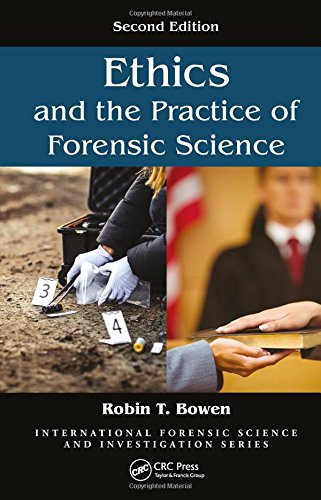

Most ebook files are in PDF format, so you can easily read them using various software such as Foxit Reader or directly on the Google Chrome browser.
Some ebook files are released by publishers in other formats such as .awz, .mobi, .epub, .fb2, etc. You may need to install specific software to read these formats on mobile/PC, such as Calibre.
Please read the tutorial at this link. https://ebooknice.com/page/post?id=faq
We offer FREE conversion to the popular formats you request; however, this may take some time. Therefore, right after payment, please email us, and we will try to provide the service as quickly as possible.
For some exceptional file formats or broken links (if any), please refrain from opening any disputes. Instead, email us first, and we will try to assist within a maximum of 6 hours.
EbookNice Team

Status:
Available4.8
10 reviewsWhile one would hope that forensic scientists, investigators, and experts are intrinsically ethical by nature, the reality is that these individuals have morality as varied as the general population. These professionals confront ethical dilemmas every day, some with clear-cut protocols and others that frequently have no definitive answers.
Since the publication of the first edition of Ethics and the Practice of Forensic Science, the field of forensic science has continued to see its share of controversy. This runs the gamut of news stories from investigators, lab personnel, or even lab directors falsifying results, committing perjury, admitting to fraud, to overturned convictions, questions about bias, ethics, and what constitutes an "expert" on the witness stand.
This fully updated edition tackles all these issues―including some specific instances and cases of unethical behavior―and addresses such salient issues as accreditation requirements, standardization of ethical codes, examiner certification, and standards for education and training.
The new edition provides:
Ethics and the Practice of Forensic Science, Second Edition explores the range of ethical issues facing those who work in the forensic sciences―highlights the complicated nature of ethics and decision-making at the crime scene, in the lab, and in the courts. The book serves both as an essential resource for laboratories to train their employees and as an invaluable textbook for the growing number of courses on ethics in criminal justice and forensic science curricula.
Accompanying PowerPoint® slides and an Instructor’s Manual with Test Bank are available to professors upon qualifying course adoption.